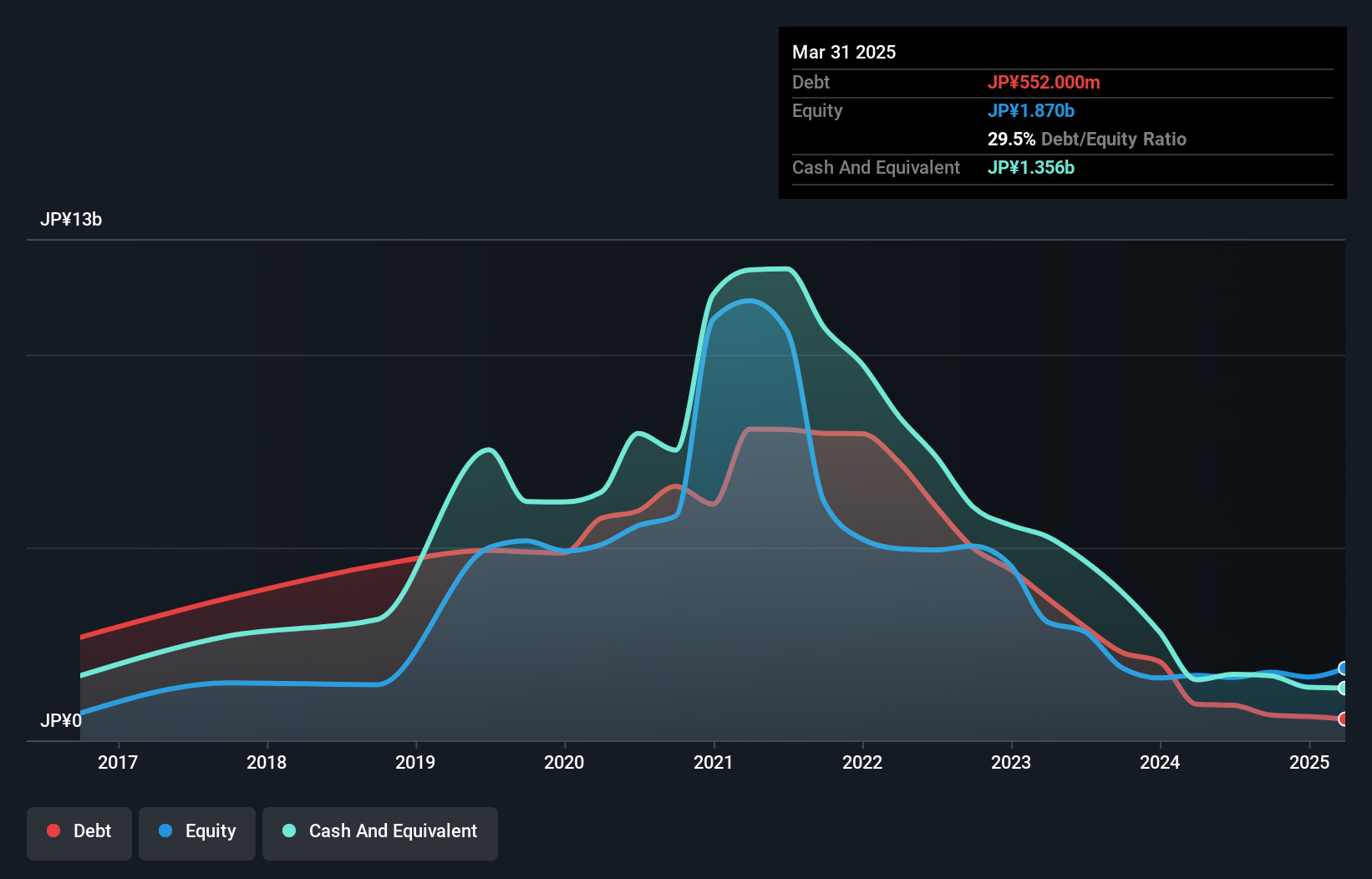Legendary fund manager Li Lu (who Charlie Munger backed) once said, 'The biggest investment risk is not the volatility of prices, but whether you will suffer a permanent loss of capital.' So it seems the smart money knows that debt - which is usually involved in bankruptcies - is a very important factor, when you assess how risky a company is. As with many other companies EduLab, Inc. (TSE:4427) makes use of debt. But the more important question is: how much risk is that debt creating?
When Is Debt Dangerous?
Debt is a tool to help businesses grow, but if a business is incapable of paying off its lenders, then it exists at their mercy. Part and parcel of capitalism is the process of 'creative destruction' where failed businesses are mercilessly liquidated by their bankers. While that is not too common, we often do see indebted companies permanently diluting shareholders because lenders force them to raise capital at a distressed price. Having said that, the most common situation is where a company manages its debt reasonably well - and to its own advantage. The first step when considering a company's debt levels is to consider its cash and debt together.
What Is EduLab's Debt?
You can click the graphic below for the historical numbers, but it shows that EduLab had JP¥552.0m of debt in March 2025, down from JP¥938.0m, one year before. But it also has JP¥1.36b in cash to offset that, meaning it has JP¥804.0m net cash.

A Look At EduLab's Liabilities
We can see from the most recent balance sheet that EduLab had liabilities of JP¥1.59b falling due within a year, and liabilities of JP¥177.0m due beyond that. Offsetting these obligations, it had cash of JP¥1.36b as well as receivables valued at JP¥1.26b due within 12 months. So it can boast JP¥853.0m more liquid assets than total liabilities.
It's good to see that EduLab has plenty of liquidity on its balance sheet, suggesting conservative management of liabilities. Because it has plenty of assets, it is unlikely to have trouble with its lenders. Succinctly put, EduLab boasts net cash, so it's fair to say it does not have a heavy debt load!
See our latest analysis for EduLab
Although EduLab made a loss at the EBIT level, last year, it was also good to see that it generated JP¥84m in EBIT over the last twelve months. The balance sheet is clearly the area to focus on when you are analysing debt. But you can't view debt in total isolation; since EduLab will need earnings to service that debt. So if you're keen to discover more about its earnings, it might be worth checking out this graph of its long term earnings trend.
Finally, while the tax-man may adore accounting profits, lenders only accept cold hard cash. While EduLab has net cash on its balance sheet, it's still worth taking a look at its ability to convert earnings before interest and tax (EBIT) to free cash flow, to help us understand how quickly it is building (or eroding) that cash balance. Over the last year, EduLab saw substantial negative free cash flow, in total. While that may be a result of expenditure for growth, it does make the debt far more risky.
Summing Up
While we empathize with investors who find debt concerning, you should keep in mind that EduLab has net cash of JP¥804.0m, as well as more liquid assets than liabilities. So we don't have any problem with EduLab's use of debt. The balance sheet is clearly the area to focus on when you are analysing debt. However, not all investment risk resides within the balance sheet - far from it. For example EduLab has 3 warning signs (and 2 which are a bit unpleasant) we think you should know about.
At the end of the day, it's often better to focus on companies that are free from net debt. You can access our special list of such companies (all with a track record of profit growth). It's free.
Valuation is complex, but we're here to simplify it.
Discover if EduLab might be undervalued or overvalued with our detailed analysis, featuring fair value estimates, potential risks, dividends, insider trades, and its financial condition.
Access Free AnalysisHave feedback on this article? Concerned about the content? Get in touch with us directly. Alternatively, email editorial-team (at) simplywallst.com.
This article by Simply Wall St is general in nature. We provide commentary based on historical data and analyst forecasts only using an unbiased methodology and our articles are not intended to be financial advice. It does not constitute a recommendation to buy or sell any stock, and does not take account of your objectives, or your financial situation. We aim to bring you long-term focused analysis driven by fundamental data. Note that our analysis may not factor in the latest price-sensitive company announcements or qualitative material. Simply Wall St has no position in any stocks mentioned.
About TSE:4427
EduLab
Researches and develops academic ability measurement technologies and educational tools in Japan and internationally.
Excellent balance sheet with low risk.
Market Insights
Community Narratives



